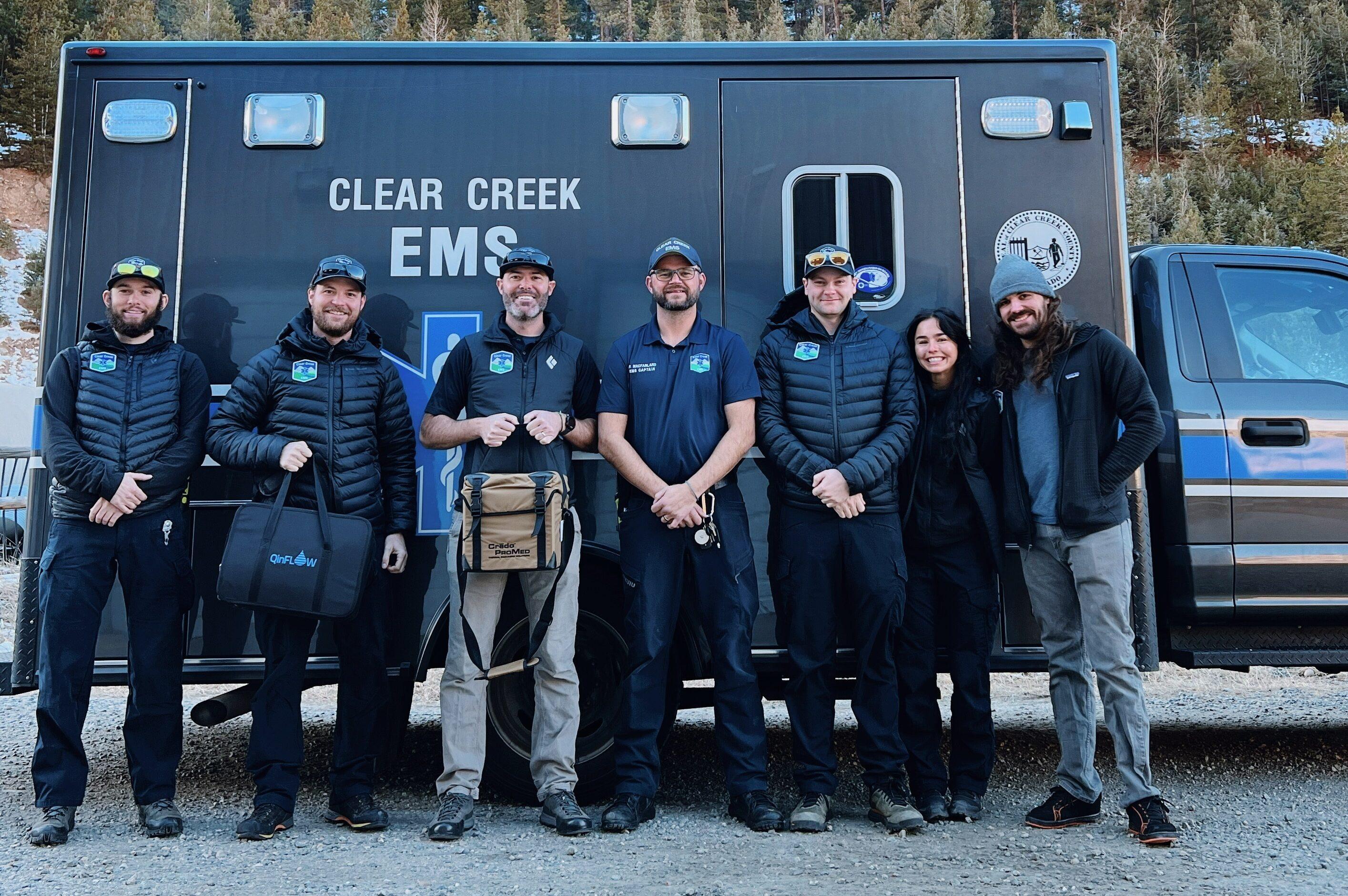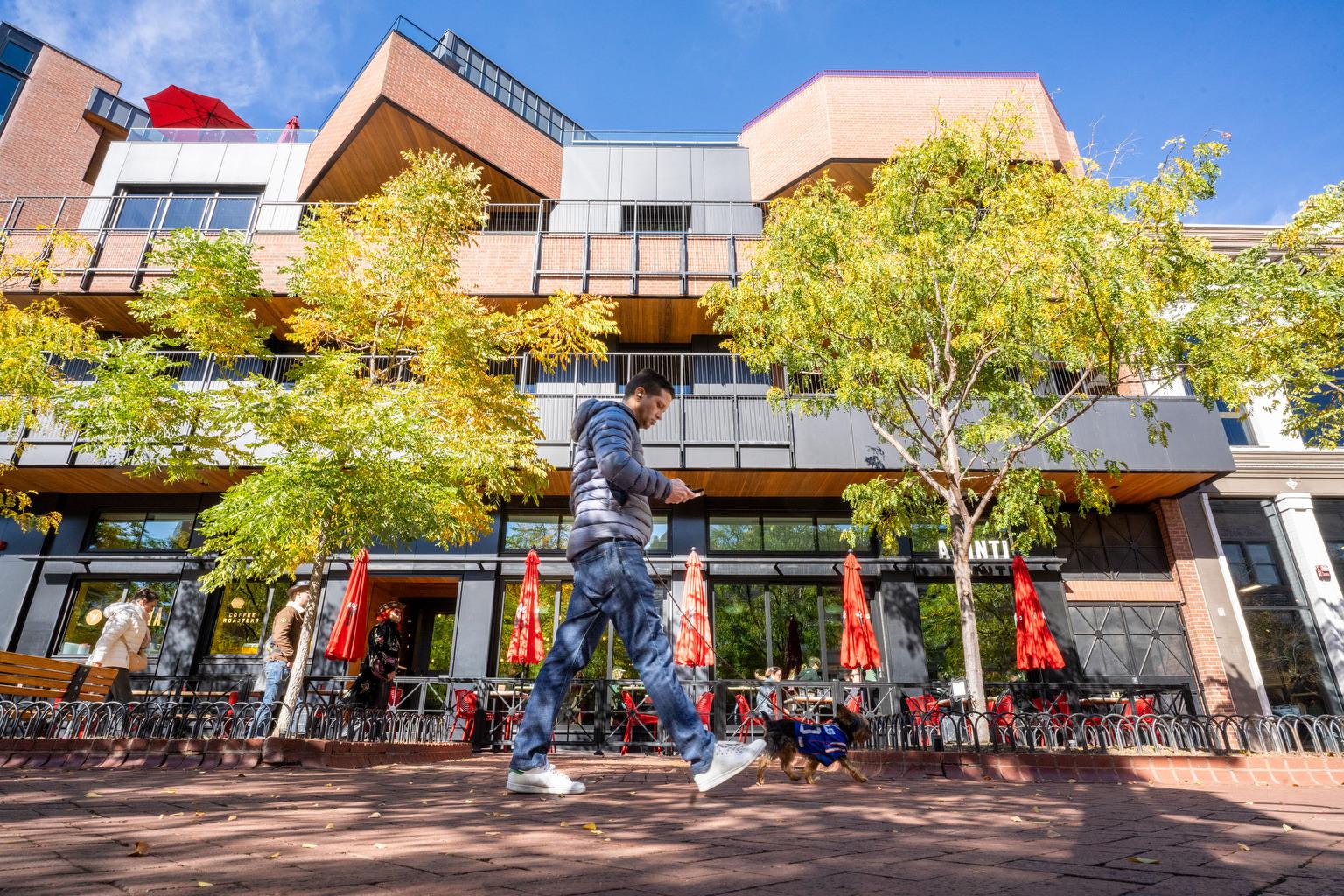 The University of Colorado Denver is offering faculty and staff a type of modified combat training that's meant to save lives should a mass shooting or terrorist attack occur.
The University of Colorado Denver is offering faculty and staff a type of modified combat training that's meant to save lives should a mass shooting or terrorist attack occur.
Since the program was introduced about a year ago, 250 people on the university’s downtown and Anschutz medical campuses have volunteered for the classes. And there's a waiting list of about 400 people.
“We call it the gunshot trauma training and the reason we label it as such is so that people have a clear understanding of the primary concept of the course,” Essi Ellis, an emergency manager with CU Denver’s campus police, says. “So we’re looking at things where you’d use a tourniquet, for instance.”
Tourniquets, which provide compression to stop bleeding wounds, are included in kits that are given to course participants.
The kits also include scissors, gauze, chest seals and other life-saving items.
Colorado Public Radio's "Colorado Matters" checked with other large campuses around the state and found that plans differ to help shooting or terrorism victims if paramedics are unable to get to them immediately.
- CU Boulder has issued 125 trauma kits -- mainly to campus police. "Often in active harmer scenarios, paramedics cannot come on scene until it is deemed safe by law enforcement," Ryan Huff, a spokesman for CU Boulder, says. "Thus, these kits allow officers to treat fellow officers or members of the public until paramedics can respond."
- CU’s Colorado Springs campus offers voluntary first aid training classes that touch on how to treat severe bleeding. "We offer training on trauma care," CU Colorado Springs spokesman Tom Hutton says. "We teach the proper use and applications for tourniquets, other ways to control severe bleeding, how to treat a 'sucking' chest wound caused by a bullet or puncture and general CPR/AED and First Aid. For all groups that receive the trauma care training, we like to frame it as applicable in many situations in addition to gunshot wounds. For example, if they are impaled, or experience a deep laceration while skiing or mountain biking in the backcountry, are involved in car accident, etc."
- Colorado State University's officers are certified in CPR and basic First Aid. "In addition, we also provide each officer with a survival tourniquet which they can either apply to a gunshot victim or themselves," CSU spokesman Mike Hooker says. "Each of our patrol vehicles is equipped with a trauma first aid kit that would be deployed when possible at a critical incident scene. One of the advantages we also have is that Poudre Fire Authority has two station houses which are a short distance from campus, and their response times are typically very fast."
Those that take the classes at CU Denver overcome their apprehensions about medically helping others or themselves through practice.
“You can learn a lot by that repetition,” Ellis says.
CU Denver is considering how to make a similar kind of training available to students, according to Ann Williams, a spokeswoman for the university, but she adds the school has no definite timeline for how to achieve it.
CU Denver receives the training via Denver Health. The hospital says it also offers similar training to some companies in the metro area.








